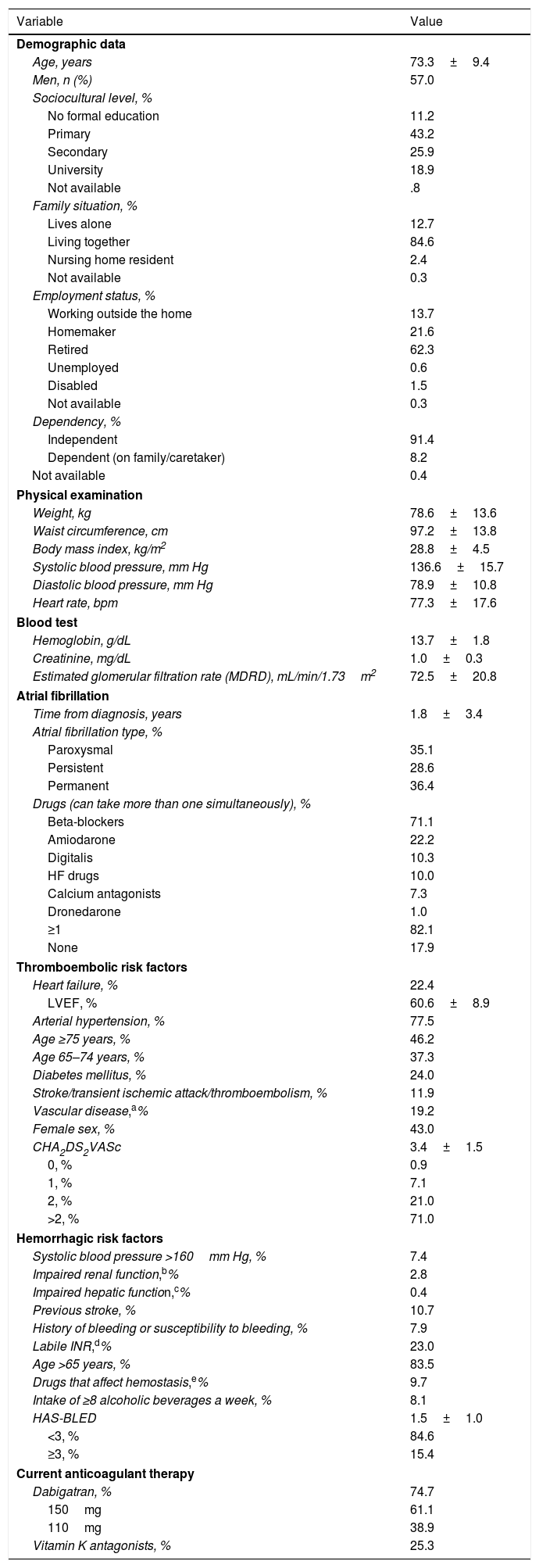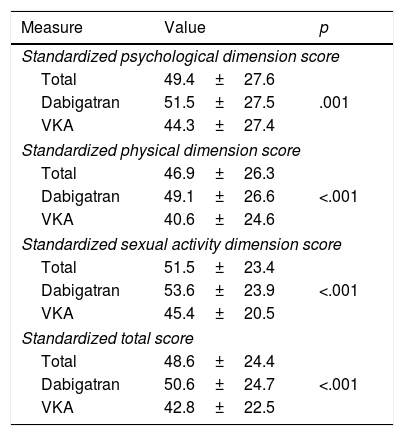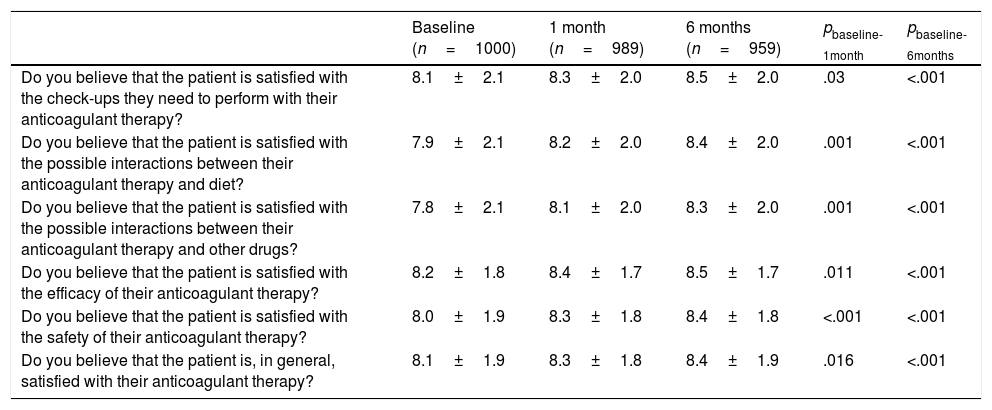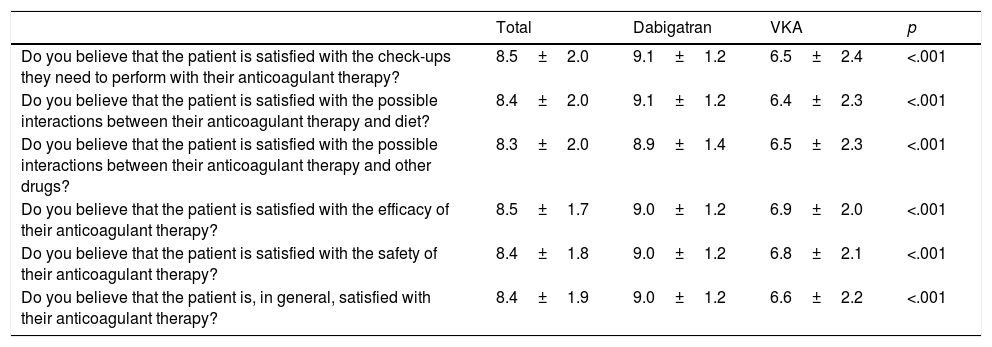To analyze the quality of life, adherence and satisfaction of patients with nonvalvular auricular fibrillation (NVAF) treated with dabigatran versus vitamin K antagonists (VKA) in cardiology consultations in Spain.
MethodsWe conducted an observational, comparative, prospective and multicentre study of patients with NVAF treated in cardiology departments, who started treatment with dabigatran or VKA in the month prior to the baseline visit. The follow-up lasted 6 months. We analyzed quality of life (using the validated AF-QoL 18 questionnaire [0, minimum; 100, maximum]), adherence (using the Morisky-Green test) and the cardiologist's perception (using a specific questionnaire [0, completely dissatisfied; 10, completely satisfied]).
ResultsWe analyzed 1015 patients (mean age, 73.3±9.4 years; 57% men; CHA2DS2VASc, 3.4±1.5; HAS-BLED, 1.5±1.0) who were treated with dabigatran (74.7%) or with VKA (25.3%). The total quality-of-life scores remained constant throughout the follow-up (47.9±23.5 and 48.6±24.4 at baseline and at 6 months, respectively; p=NS) but were higher at 6 months for the dabigatran group (50.6±24.7 vs. 42.8±22.5; p<.001). Treatment adherence was high during the study but greater with dabigatran at 6 months (89.2% vs. 81.1%; p=.001). There was a better perception of the cardiologist regarding the satisfaction of the patients treated with dabigatran at 6 months (9.0±1.2 vs. 6.6±2.2; p<.001).
ConclusionsFor patients with NVAF and high thromboembolic risk treated in cardiology consultations, the adherence, satisfaction and quality of life were higher for the patients treated with dabigatran than for those treated with VKA.
Analizar la calidad de vida, la adherencia y la percepción del grado de satisfacción del tratamiento con dabigatrán frente a antagonistas de vitamina K (AVK) en pacientes con fibrilación auricular no valvular (FANV) atendidos en consultas de cardiología en España.
MétodosEstudio observacional, comparativo, prospectivo y multicéntrico en pacientes con FANV atendidos en Cardiología, que iniciaron tratamiento con dabigatrán o AVK en el mes previo a la visita basal. El seguimiento fue de 6 meses. Se analizaron la calidad de vida mediante el cuestionario validado AF-QoL 18 (0: mínimo; 100: máximo), la adherencia mediante el test de Morisky-Green y la percepción del cardiólogo mediante un cuestionario específico (0: completamente insatisfecho; 10: totalmente satisfecho).
ResultadosSe analizó a 1.015 pacientes (73,3±9,4 años; 57% varones; CHA2DS2VASc: 3,4±1,5; HAS-BLED: 1,5±1,0), tratados con dabigatrán (74,7%) o con AVK (25,3%). Las puntuaciones totales de calidad de vida se mantuvieron constantes durante el seguimiento (47,9±23,5 basalmente vs. 48,6±24,4 a los 6 meses; p=NS), pero superiores a los 6 meses en el grupo de dabigatrán (50,6±24,7 vs. 42,8± 22,5; p<0,001). La adherencia al tratamiento fue elevada durante el estudio, pero superior con dabigatrán a los 6 meses (89,2% vs. 81,1%; p=0,001). Existió una mejor percepción del cardiólogo sobre la satisfacción de los pacientes tratados con dabigatrán a los 6 meses (9,0±1,2 vs. 6,6±2,2; p<0,001).
ConclusionesEn pacientes con FANV y alto riesgo tromboembólico atendidos en consultas de Cardiología, tanto la adherencia como la satisfacción y la calidad de vida fueron superiores en los pacientes tratados con dabigatrán que con AVK.
Article
Diríjase desde aquí a la web de la >>>FESEMI<<< e inicie sesión mediante el formulario que se encuentra en la barra superior, pulsando sobre el candado.

Una vez autentificado, en la misma web de FESEMI, en el menú superior, elija la opción deseada.

>>>FESEMI<<<














